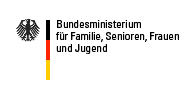Family
Family
The “family” is today taking on ever more diverse forms: children with parents who are married or unmarried, with parents of foreign origin, with step-parents, adoptive parents or foster parents, with single fathers or mothers, multi-generation households, “patchwork families” in which one or both parents enter into new relationships and start new families which become part of the existing family, and bi-national families are increasingly common forms of family. A family is where children are or where several generations live together.
The diversity of family forms is a challenge to modern family policy. What does society need in order to do justice to this diversity? What do families need so that they can have the children they want without mothers and fathers having to forego their stake in society in the form of work, social commitment, etc.? What do children need within the family and outside it in order to develop and be able to prepare for the challenges of society?
By means of material benefits such as child raising benefit and by creating framework conditions for instance for the compatibility of career and family, family policy provides answers to these questions. In the same way, companies have an impact on families when they decide to promote compatibility by offering in-house child-care facilities. If staff policy is systematically operated in a way that is sensitive to gender, then these necessities will be recognized and optimized measures can be developed. The declining birthrate in Germany shows that having children tends to be a disadvantage in our society. But being able to combine having a family with having a career is not a “women’s issue”, but a parental issue. The sons and daughters of elderly people who have to combine working with nursing care also have an interest in the subject of compatibility.
Families are made up of women and men, boys and girls, and they are embedded in a society with certain gender arrangements. Therefore, family policy issues are closely linked with gender issues. What concepts of femininity and masculinity are communicated in families? What do family structures and a family-friendly society look like in which there is real equality of opportunity, justice and solidarity?
It is central to gender equality between women and men in the family that paid and unpaid work cease to be allocated on gender lines, that is, that an end is made to gender-specific division of labor. Who does what and how much work should not be determined by recourse to roles but should be in accordance with individual wishes and capabilities.
Gender Mainstreaming tools make it possible to work in all subject areas and policy fields towards real freedom of choice between ways of life in which family or career or both are at the center and the family therefore has a future.
There are several gender aspects which are often important in the subject area “family”.
The diversity of family forms is a challenge to modern family policy. What does society need in order to do justice to this diversity? What do families need so that they can have the children they want without mothers and fathers having to forego their stake in society in the form of work, social commitment, etc.? What do children need within the family and outside it in order to develop and be able to prepare for the challenges of society?
By means of material benefits such as child raising benefit and by creating framework conditions for instance for the compatibility of career and family, family policy provides answers to these questions. In the same way, companies have an impact on families when they decide to promote compatibility by offering in-house child-care facilities. If staff policy is systematically operated in a way that is sensitive to gender, then these necessities will be recognized and optimized measures can be developed. The declining birthrate in Germany shows that having children tends to be a disadvantage in our society. But being able to combine having a family with having a career is not a “women’s issue”, but a parental issue. The sons and daughters of elderly people who have to combine working with nursing care also have an interest in the subject of compatibility.
Families are made up of women and men, boys and girls, and they are embedded in a society with certain gender arrangements. Therefore, family policy issues are closely linked with gender issues. What concepts of femininity and masculinity are communicated in families? What do family structures and a family-friendly society look like in which there is real equality of opportunity, justice and solidarity?
It is central to gender equality between women and men in the family that paid and unpaid work cease to be allocated on gender lines, that is, that an end is made to gender-specific division of labor. Who does what and how much work should not be determined by recourse to roles but should be in accordance with individual wishes and capabilities.
Gender Mainstreaming tools make it possible to work in all subject areas and policy fields towards real freedom of choice between ways of life in which family or career or both are at the center and the family therefore has a future.
There are several gender aspects which are often important in the subject area “family”.
erstellt von Administrator
—
zuletzt verändert:
02.01.2010 20:08





